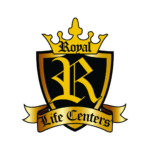Key Takeaways:
- Medication-Assisted Treatment (MAT) blends medicine with therapy — it uses FDA-approved medications alongside counseling and behavioral therapies to treat substance use disorders, helping address physical and psychological aspects of addiction.
- MAT works by reducing withdrawal symptoms and cravings — medications like methadone, buprenorphine, naltrexone, and others help stabilize brain chemistry, making recovery safer and more manageable.
- It’s effective for multiple addictions — while most common for opioid use disorder, MAT can also support recovery from alcohol dependence and other substance use disorders when tailored to individual needs.
- Holistic recovery support enhances outcomes — combining medications with behavioral therapy and counseling equips individuals with coping skills, relapse-prevention strategies, and ongoing recovery planning.
Question:
What is medication-assisted treatment (MAT) for addiction?
Answer:
Medication-Assisted Treatment (MAT) is a comprehensive, evidence-based approach to treating substance use disorders that combines FDA-approved medications with counseling and behavioral therapies to address both the physical and psychological components of addiction. Medications such as methadone, buprenorphine, and naltrexone are used to reduce withdrawal symptoms, curb intense cravings, and stabilize brain chemistry, which can significantly improve the chances of maintaining long-term recovery. While MAT is most widely used for opioid use disorder, it can also support treatment for alcohol dependence and other substance use issues when appropriately personalized. A key benefit of MAT is that it allows individuals to engage more fully in therapy and develop essential coping skills, relapse-prevention strategies, and healthier lifestyle habits. By integrating medicine and behavioral care, MAT offers a balanced path toward safer, sustained sobriety.
At Royal Life Centers, medication-assisted treatment is an integral part of our approach to the recovery process. We believe that comprehensive care is key for long-term sobriety. By combining both holistic and research-based treatments, we provide our guests with whole-health healing.
What Is Medication-Assisted Treatment?
Medication-assisted treatment (MAT) is a comprehensive approach to treating substance use disorders. It involves combining medication with counseling and behavioral therapies. In particular, this approach has proven effective for treating opioid use disorders.
During MAT, medications are used to help with a variety of addiction-related issues. This includes reducing cravings, withdrawal symptoms, and the pleasurable effects of the substance.
Counseling and behavioral therapies are highly effective tools when used in combination with medications. This includes helping individuals develop coping skills and address underlying issues related to their substance abuse.
How Does MAT Help with Substance Abuse?
MAT provides a comprehensive approach to recovery. It is designed to help individuals achieve and maintain long-term sobriety by addressing both the physical and psychological aspects of substance abuse.
There are several ways that MAT can help with substance abuse, including:
Reducing Withdrawal Symptoms
One of the biggest benefits of MAT is that these medications can help manage withdrawal symptoms. These can often be severe and uncomfortable, and in some cases, life-threatening. By reducing these symptoms, MAT makes it more likely that people will continue with treatment.
Reducing Cravings for Drugs or Alcohol
The medications used in MAT can also significantly reduce cravings for the substance. For many people, these cravings can be a major trigger for relapse. Reducing these cravings not only makes it easier for individuals to stay in recovery but also increases their chances of maintaining their sobriety in the long term.
Stabilizing Brain Chemistry
MAT can improve not only the physical well-being of those in recovery but also their mental health. This is highly important for reducing the risk of complications associated with substance use. By stabilizing the individual’s brain chemistry, medications can increase the likelihood of lasting sobriety.
What Substances Can MAT Help With?
Medication-assisted treatment is primarily used to treat opioid use disorders. This includes substances like:
- Heroin
- Prescription opioids (e.g., oxycodone, hydrocodone, morphine)
- Fentanyl
While MAT is most commonly used for opioid addiction, it can also be considered for other substance use disorders, such as:
- Alcohol dependence
- Nicotine addiction
It is also important to keep in mind that MAT can be used to treat co-occurring issues, such as underlying mental health or medical conditions. This means MAT may be a part of your recovery plan, even if you are not specifically struggling with one of the substances listed above.
MAT for Opioid Use Disorder
MAT is most commonly used for treating opioid use disorders. Opioid treatment involves more than just medication, however. Treatment of opioid abuse includes psychotherapy and holistic recovery options.
Several medications are used in medication-assisted treatment for opioids, including:
Methadone
Methadone is a full opioid agonist. This means it binds to opioid receptors in the brain, producing similar effects as opioids like heroin or morphine. This includes pain relief, euphoria, and sedation.
When used in a medical setting, methadone is administered in small, controlled doses. This helps manage cravings and withdrawal symptoms as the individual is weaned off of an abused opioid.
Buprenorphine (Suboxone)
Buprenorphine (Suboxone) is a partial opioid agonist commonly used in opioid medication-assisted treatment. As a partial agonist, this medication binds to opioid receptors in the brain but does not produce the full effects of a full opioid agonist. This means that it can reduce cravings and withdrawal symptoms without producing the same level of euphoria or sedation.
Naltrexone
Naltrexone is an opioid antagonist that blocks the effects of opioids. Opioid antagonists work by binding to opioid receptors in the brain. This prevents opioids from binding and producing their effects. This medication can significantly help reduce the urge to use an abused substance, as it will not produce the desired effects.
MAT for Alcohol Use Disorder
Medication-assisted treatment for alcohol abuse disorder is less commonly used compared to its application for opioid addiction. However, it can be beneficial for some individuals. Currently, there is no medication that directly blocks the effects of alcohol. That said, certain medications can help manage withdrawal symptoms and reduce cravings.
Disulfiram
When taken with alcohol, Disulfiram can cause a variety of unpleasant symptoms, including:
- Flushing
- Nausea
- Vomiting
- Headache
- Rapid heartbeat
- Shortness of breath
- Chest pain
These symptoms can be severe and can deter individuals from drinking alcohol. Disulfiram is typically used in conjunction with behavioral therapies. This helps individuals address underlying issues and develop healthy coping skills.
Acamprosate
Acamprosate is a medication used to treat alcohol use disorder. It is believed to work by restoring the balance of certain neurotransmitters in the brain that are involved in alcohol dependence. This helps with reducing cravings and withdrawal symptoms. By doing so, Acamprosate can help individuals avoid relapse and maintain sobriety.
Naltrexone
Naltrexone is a medication used to treat both alcohol use disorder and opioid use disorder. It works by blocking the effects of these substances. This helps prevent individuals from getting high or experiencing a euphoric effect.
Behavioral Therapy and Medication-Assisted Treatment
Behavioral therapy and medication-assisted treatment are often used in conjunction to provide a comprehensive approach to addiction treatment. MAT addresses the biological aspects of addiction by managing cravings and withdrawal symptoms. Behavioral therapy, on the other hand, focuses on psychological and behavioral factors.
Cognitive-behavioral therapy (CBT) for Addiction
Cognitive-behavioral therapy (CBT) is a widely used approach to treating substance use disorders. It focuses on identifying and changing negative thought patterns and behaviors that contribute to addiction.
CBT and MAT often go hand in hand when it comes to addiction treatment. This therapy format helps individuals recognize how their addiction formed. Meanwhile, medications help manage the symptoms that continue to drive this substance abuse.
Dialectical Behavior Therapy (DBT) for Addiction
Dialectical Behavior Therapy (DBT) is a type of cognitive-behavioral therapy. It has been shown to be particularly effective for individuals with substance use disorders. DBT focuses on helping individuals develop skills to manage emotions, tolerate distress, and improve relationships. When used in conjunction with MAT, this form of therapy can be highly effective for treating substance use and mental health issues.
Find Medication-Assisted Treatment for Addiction
If you are struggling with a substance use disorder, it is important to find a treatment center that offers medication-assisted treatment. At Royal Life Centers, we strive to provide the most comprehensive care possible in all of our treatment programs for addiction and behavioral health.
We offer a full continuum of care to those recovering from addiction, including MAT. We work with you one-on-one to build a recovery plan that caters to your individual needs. Our top priority is your successful recovery. Reach out to us today to learn more about our programs and how MAT can be a good fit for you.







